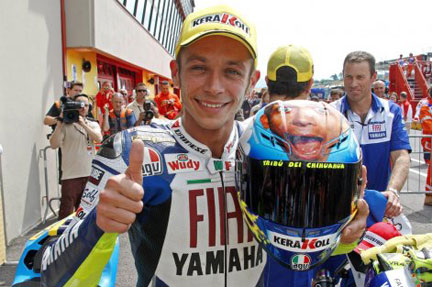 The other day I was in a dinner organized from the Alumni Association of a well known business school. the subject with some of my classmates during dinner was around the approach used by many corporation to replace senior exucutives with younger professionals. The experience from most of the people turned to be very negative. The promise made to the hiring company from the potential candidate failed and the young employee faced a disappointing experience. I started to think about it and I wanted to bring those thoughts here in my blog.
The other day I was in a dinner organized from the Alumni Association of a well known business school. the subject with some of my classmates during dinner was around the approach used by many corporation to replace senior exucutives with younger professionals. The experience from most of the people turned to be very negative. The promise made to the hiring company from the potential candidate failed and the young employee faced a disappointing experience. I started to think about it and I wanted to bring those thoughts here in my blog.
If you are looking to replace an experienced professional with a young potential, chances are that you do it for 1 of these 2 reasons: either because you want to save on the compensation envelope or because you want to get fresh blood in your workforce, I think that beside a good hiring process, with a good assessment of what are the skills you are looking for, it become evident that you need to look for a good trade off between the low cost of a young professional entering the work life and someone with some sort of experience. In all cases you need to make sure that you have in place a good mentoring program to accelerate the learning curve related to the corporate culture, the network within the company and the operational framework of the hiring company.
The fact is that without a serious coaching and mentor program most of those young promises will not turn into the perfect investment for the company and the frustration generated by the reality of the job will most probably make the young professional start to search for another job.
It takes time to transform a perfect stallion into the race horse of a grand prix…
Let me give you an example…
If you are passionate about motorbikes Valentino Rossi is a name that means a lot to you. Valentino become a legend and an inspiration for an army of motorbike fans.
if you are not familiar with him just do some goggling with his name and you’ll discover the unbelievable talent he is…
He become world champion in MotoGP with the Honda in 2001, kept his number 1 position in 2002 and in 2003.
In 2003 the team Honda after a conflict on the contract renewal with Valentino announced through Takeo Fukui President and CEO of the Honda Group that Rossi was already engaged with another team and that he was going to be replaced by an anonymous pilot form Japan. He claimed that Honda was going to win again and again because it was the motorbike that was great and it was not necessary to have an expert pilot to win. The concept was that because of the motorbike, the race team and the expertise within Honda the skills of the pilot were about nothing.
The rest is history…
Valentino moved to Yamaha and won the MotoGP the year after in 2004 and 2005.
Honda won only in 2006, but with an American pilot and after that Honda has not been capable to win again, whilst Valentino Rossi won in 2008 and 2009 always with Yamaha.
This story is a lesson.  It’s a lesson on the value of a skilled person, the value that an individual have built in a specific domain using all the possibilities offered to get to the best result.
It’s a lesson on the value of a skilled person, the value that an individual have built in a specific domain using all the possibilities offered to get to the best result.
But specularly it is also a lesson on those that believe that experience can be easily replaced by a low cost substitute.
Let’s look at what Globalization teach us… we can definitely discover the next low cost place, we can then move some functions there taking full advantage of the scales and the overall saving offered there. But will it be still a success in the delivery quality and in the innovation side after few years? we all agree that in the short term it does make sense, that from a pure cost perspective the financial excel file will show us huge savings… but are we counting all the numbers? Are we seriously including the cost to make it happen? are we including the hidden cost of cultural approach, cultural speed, and cultural reactivity? Are we including the full investment to make sure that in the mid term this decision will look wise and eventually in the long term will be remembered as the most important and strategic one?
Let’s be clear the reality is that most of the time the driver of replacing a senior manager with someone that just come out from school is the overall cost saving and the hope that the energy and passion that this new comers could potentially bring into the job… What we frequently forget is that the senior manager have a social capital within the company that speed up execution, the network made of all the other manager he got to work with in the past that will allow him/her to be much faster than the new comer… Credibility, trust, favors, relationship are not existing in the new comers, you need to invest to build them in acceleration or… you need to wait to have him/her build them.
It’s a diatribe… short term versus mid/long term…
Are you working in a company that strategically think in longer terms or in a company that let next quarter results drive the entire ecosystem?
Do you have established mentoring program available for young talents, or can you access a coaching program to accelerate your personal and organizational success?
Let me know your thoughts folks.. I’m sure this is a passionate topic…
Stefano Burbui



